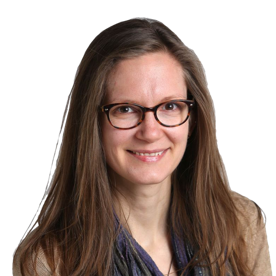Michigan U.S. Senate candidates largely embrace task force debate plan
 Melissa Nann Burke
Melissa Nann BurkeNearly all of the major U.S. Senate candidates in Michigan said Tuesday they would be willing to participate in three debates ahead of the fall general election organized by the new Michigan Debate Taskforce.
The first debate is planned for the Grand Rapids area on Sept. 12, the second in the Traverse City area on Oct. 10 and the last in Metro Detroit on Oct. 22 that would be broadcast by TV partners. The task force is comprised of universities, Chambers of Commerce and the Urban Leagues of Detroit and west Michigan, among others.

The Democratic frontrunner, three-term U.S. Rep. Elissa Slotkin of Holly, was the only candidate not to explicitly commit to the proposal, though she didn't rule out participating. Slotkin took part in debates in her three runs for U.S. House in mid-Michigan.
"Elissa has always done general election debates in each of her last campaigns, and she plans to do the same in this race," spokesman Antoine Givens said in a statement.
"She welcomes the chance to highlight the differences between her and her opponents, and we look forward to working out those details in the coming months."
The other two Democratic candidates, the actor Hill Harper of Detroit and businessman Nasser Beydoun of Dearborn, both said they'd commit to "any" Michigan debate if they're the party nominee. Both have been pushing for primary election debates in front of voters as well.
"This is the first competitive Democratic primary for an open U.S. Senate seat in Michigan in nearly two and a half decades," Harper said in a statement. "Michiganders deserve to see and hear from the candidates about their values and platforms. The people of Michigan are choosing a new senator, and they deserve every opportunity to make an informed decision."
Republican candidates Sandy Pensler and former U.S. Rep. Mike Rogers and Justin Amash also embraced the taskforce's proposal. Rogers of Brighton's campaign said he is game to debate "anytime, anywhere."
“Anytime, anywhere, Mike Rogers is ready and eager to debate Elissa Slotkin over her wholesale support of the Biden agenda of higher prices, open borders, and big government mandates,” Rogers spokesman Chris Gustafson said in a statement.
Former U.S. Rep. Justin Amash, a Libertarian from Cascade Township who is seeking the GOP nod, also welcomed the debate plan.
"I welcome the opportunity for a head-to-head comparison of our ideas and records to clarify what’s at stake," Amash said. "I’m the only candidate who will follow the Constitution, protect everyone’s rights and take on both parties in Washington when they abuse power.”
Part of the intent behind the task force's proposal is to move the control of debate rules, timing and formats away from political campaigns ― which tend to prefer more controlled environments and fewer debates ― and into the hands of a neutral entity in Michigan that will prioritize higher quality information being disseminated to the broader public, organizers said.
The task force also saw a prime opportunity in a tossup Senate race for an open statewide seat, where no incumbent could try to steer away from debating their opponents.
"I’m delighted to hear that so many of the candidates are so positive about this opportunity to make their case to the voters and that they are willing to work with the taskforce," said Dave Dulio, the director of the Center for Civic Engagement at Oakland University, who is helping coordinate the task force.
"I’m hopeful that when the primaries are over that all the candidates who qualify are as enthusiastic as they seem to be at this point."
Debate qualifications would include those who get on the general election ballot and met minimal criteria such as polling at 5% or higher in two public and independent polls, filing all required campaign finance reports and having a campaign headquarters and website with policy proposals, according to the letter sent to candidates.
The task force's initiative comes at a time when Senate debates in competitive contests have declined nationally, as tracked by Brookings Institution research from October 2022. For instance, no debate took place between Sen. Gary Peters, D-Bloomfield Township, and Republican nominee John James in 2020. Peters defeated James 49.9%-48.2%, a margin of 92,000 votes.
In 2018, Sen. Debbie Stabenow, D-Lansing, and James had two debates in October hosted by the Detroit Economic Club and Grand Valley State University. Stabenow won that contest 52%-46% but is not running again this year, leaving her seat up for grabs.
Typically, the hurdle to having more debates is that campaigns struggle to agree on the number of debates, the dates, the times, moderators or rules. When those disputes can't be resolved by the hosting organization, the debate often gets canceled.
The members of the task force include the Detroit Economic Club, as well as the Economic Club of Traverse City, the Grand Rapids Chamber, Oakland University, Grand Valley State University, Northwestern Michigan College, the Northern Michigan Chamber Alliance, the Hispanic Alliance, and the Urban League of Detroit and Southeast Michigan and the Urban League of West Michigan.
mburke@detroitnews.com